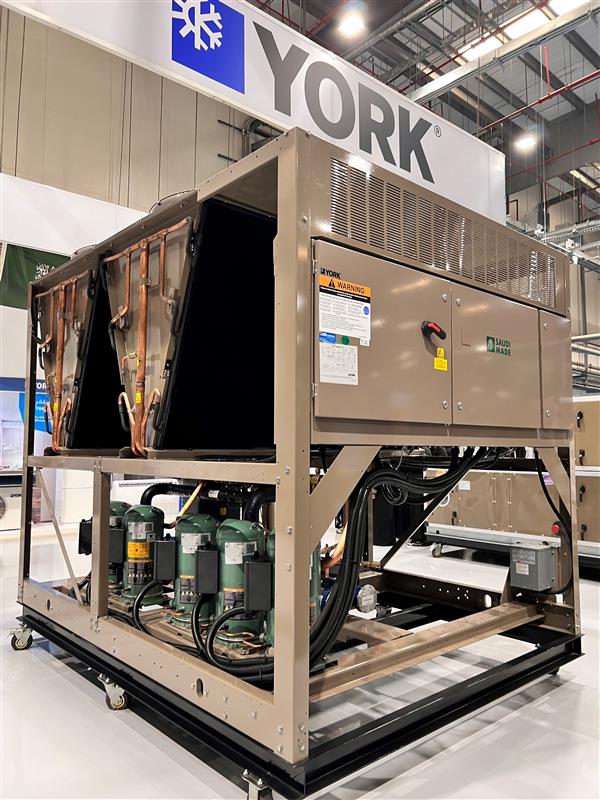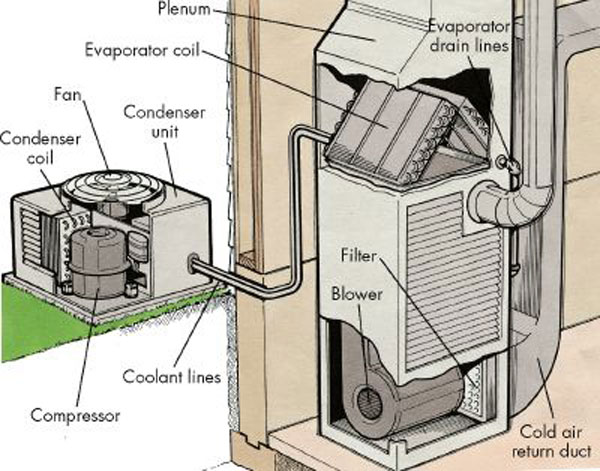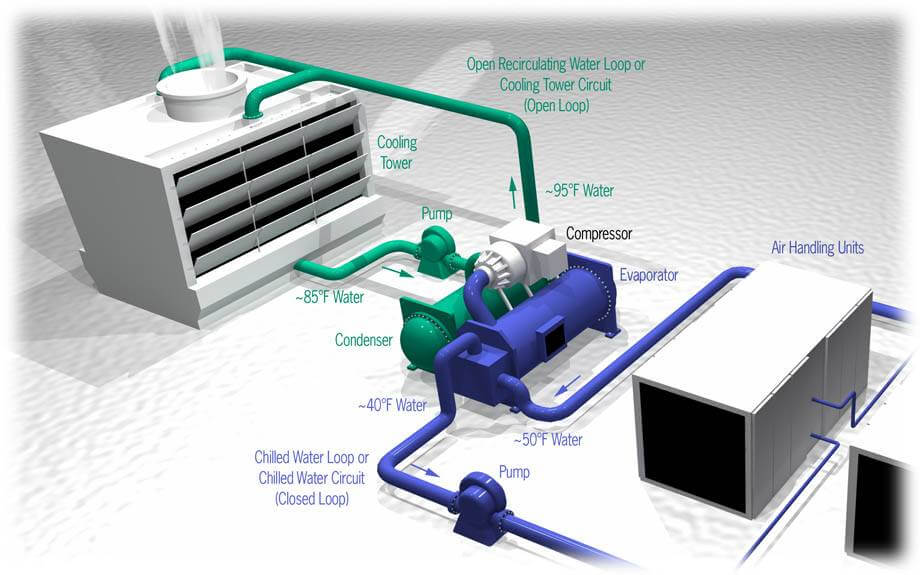Learn how HVAC experts support dependable indoor climate control
Discovering the Important Parts of an Efficient Cooling And Heating System
A reliable HVAC system is built on numerous vital elements that work in harmony. Each component, from the thermostat to the ductwork, plays an important role in maintaining comfort and energy efficiency. Understanding these elements is essential for optimizing efficiency and improving indoor air high quality. As one examines these components, the detailed connections between them reveal understandings into boosting total system efficiency. What specific factors contribute most to this performance?
The Function of the Thermostat in Heating And Cooling Efficiency
Although commonly neglected, the thermostat plays a crucial function in the efficiency of heating and cooling systems. HVAC experts. This tiny gadget serves as the main control facility, controling temperature settings and making sure excellent convenience within a space. By accurately sensing the ambient temperature, the thermostat interacts with the heating, ventilation, and air conditioning devices to maintain the wanted environment
An efficient thermostat minimizes power intake by activating the a/c system just when required, consequently protecting against excessive heating or cooling. Modern clever and programmable thermostats boost this efficiency better by enabling customers to establish schedules and remotely adjust setups, adjusting to daily regimens.
The placement of the thermostat is vital; improper location can lead to imprecise temperature readings, resulting in ineffective procedure. Overall, a well-functioning thermostat not only enhances convenience yet likewise adds markedly to power financial savings and the durability of the a/c system.
Comprehending the Significance of Air Filters
Air filters serve an essential feature in cooling and heating systems by assuring that the air circulating within a space stays healthy and clean. These filters trap dirt, allergens, and other pollutants, stopping them from being recirculated throughout the setting. By capturing these particles, air filters add to enhanced indoor air quality, which can significantly profit residents' health and wellness, specifically those with allergies or respiratory conditions.
Furthermore, maintaining tidy air filters improves the efficiency of HVAC systems. Stopped up filters can restrict air flow, causing the system to function more challenging to maintain wanted temperature levels, causing increased energy consumption and greater utility expenses. Regularly changing or cleaning filters is a crucial upkeep step that can lengthen the lifespan of a/c tools. Ultimately, comprehending the relevance of air filters enables house owners and building supervisors to take proactive measures to ensure a well-functioning, reliable a/c system that promotes a secure and comfortable interior setting.

The Capability of the Furnace and Heatpump
Heaters and heatpump are important parts of heating and cooling systems, accountable for offering heat throughout cooler months. Furnaces operate by home heating air via burning or electric resistance, then dispersing it throughout the home through air ducts. They generally offer fast home heating and can be fueled by natural gas, electricity, or oil, depending on the system kind.
On the other hand, warmth pumps transfer heat instead of produce it. They extract heat from the outdoors air or ground, also in reduced temperatures, and transfer it inside. HVAC experts. This twin functionality allows heatpump to additionally give cooling in warmer months, making them versatile choices for year-round environment control
Both systems call for proper maintenance to assure effectiveness and durability. While heating systems master severe chilly, heatpump can be advantageous in moderate environments. Understanding their distinctive capabilities aids house owners in picking the most suitable option for their home heating requires.
Exploring the Air Conditioning Device
The cooling device is an essential part of a/c systems, offered in different types to match different requirements. Understanding the effectiveness scores of these units is important for making notified selections regarding power usage and cost. This section will check out the varied types of air conditioning unit and make clear just how performance ratings effect efficiency.
Kinds of Air Conditioners
While different factors affect the selection of cooling systems, understanding the various types offered is crucial for house owners and building supervisors alike. Central air conditioning conditioners are designed to cool down whole homes or structures, using a network of air ducts for airflow. Window devices provide a more localized option, perfect for tiny rooms or solitary areas. Portable a/c unit provide versatility, allowing click to read customers to move the device as required. Ductless mini-split systems are an additional option, integrating the performance of main systems with the ease of zoning, as they require no ductwork. Geothermal systems harness the planet's temperature for energy-efficient cooling. Each kind features distinct benefits, making informed choices important for reliable climate control.

Performance Scores Discussed
Recognizing efficiency scores is necessary for selecting the ideal cooling device, as these metrics provide insight right into the system's efficiency and energy consumption. One of the most common rating for air conditioning unit is the Seasonal Energy Performance Ratio (SEER), which determines the cooling output during a typical cooling season divided by the overall electrical power input. A greater SEER indicates far better efficiency. Additionally, the Energy Effectiveness Ratio (EER) is used for determining effectiveness under certain conditions. An additional important metric is the Energy Celebrity certification, which represents that a device satisfies strict energy performance standards. By evaluating these ratings, consumers can make educated selections that not only optimize comfort but additionally lower power prices and ecological effect.
The Relevance of Ductwork and Air flow
Efficient ductwork style and air flow monitoring play essential roles in the overall efficiency and efficiency of cooling and heating systems. Correct ductwork warranties that conditioned air is dispersed equally throughout a space, reducing temperature changes and boosting comfort. look at this web-site Well-designed ducts minimize resistance to air movement, minimizing the workload on heating and cooling equipment and ultimately lowering energy intake.
Air flow monitoring entails tactically placing vents and signs up to improve the flow of air. This avoids usual problems such as cold or warm spots, which can occur when air movement is obstructed or improperly balanced. In addition, the appropriate duct products and insulation can even more enhance effectiveness by reducing warmth loss or gain during air transportation.
A reliable ductwork system not only adds to energy cost savings yet can also lengthen the lifespan of heating and cooling equipment by lowering unnecessary pressure (HVAC experts). As a result, recognizing the relevance of ductwork and airflow is important for attaining peak heating and cooling system performance
Routine Maintenance Practices to Boost Performance
Routine upkeep techniques are necessary for making certain peak performance of a/c systems. These practices consist of regular evaluations, cleansing, and necessary fixings to maintain the system running efficiently. On a regular basis changing air filters is essential, as blocked filters can block airflow and minimize performance. Furthermore, technicians must inspect and tidy evaporator and condenser coils to stop overheating and power waste.
Annual professional examinations are additionally suggested, as skilled technicians can identify possible issues before they intensify. Oiling relocating components decreases wear and tear, adding to a much longer life expectancy for the system. In addition, ensuring that the thermostat works properly aids in preserving excellent temperature control.

Regularly Asked Questions
How Commonly Should I Change My Thermostat?
Thermostats must generally be replaced every 5 to 10 years, depending upon usage and innovation innovations. Routine checks are image source suggested to assure peak efficiency, particularly if experiencing inconsistent temperature level control or raised power expenses.
What Size Air Filter Is Best for My Heating And Cooling System?
The finest size air filter for an a/c system differs by system design. Generally, it's important to consult the proprietor's handbook or examine the existing filter measurements to ensure peak efficiency and air quality.
Can I Install a Heatpump Myself?
Setting up a heatpump separately is possible for competent individuals, yet it requires expertise of electrical systems and neighborhood codes. Hiring a professional is recommended to guarantee correct setup and ideal system performance.
Exactly how Do I Know if My Ductwork Is Efficient?
To establish ductwork performance, one must check for leakages, action air movement at vents, check insulation quality, and examine temperature level distinctions between supply and return air ducts. Specialist assessments can offer comprehensive understandings into general performance.
What Are Indicators My Cooling And Heating Needs Immediate Upkeep?
Indications that a cooling and heating system needs immediate maintenance include unusual sounds, inconsistent temperatures, boosted power expenses, unpleasant odors, and frequent biking. Resolving these issues immediately can avoid more damages and guarantee top system performance.
Air filters serve a necessary function in Cooling and heating systems by guaranteeing that the air distributing within a space continues to be clean and healthy. Additionally, maintaining tidy air filters enhances the efficiency of Heating and cooling systems. Ductless mini-split systems are one more choice, incorporating the efficiency of main systems with the ease of zoning, as they call for no ductwork. Recognizing performance rankings is essential for choosing the ideal air conditioning device, as these metrics supply understanding right into the system's performance and power intake. The finest dimension air filter for an A/c system differs by device style.